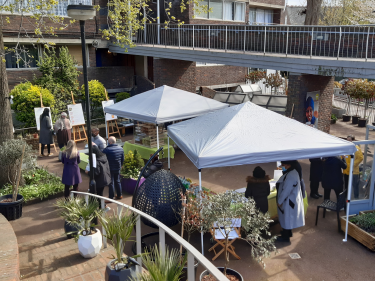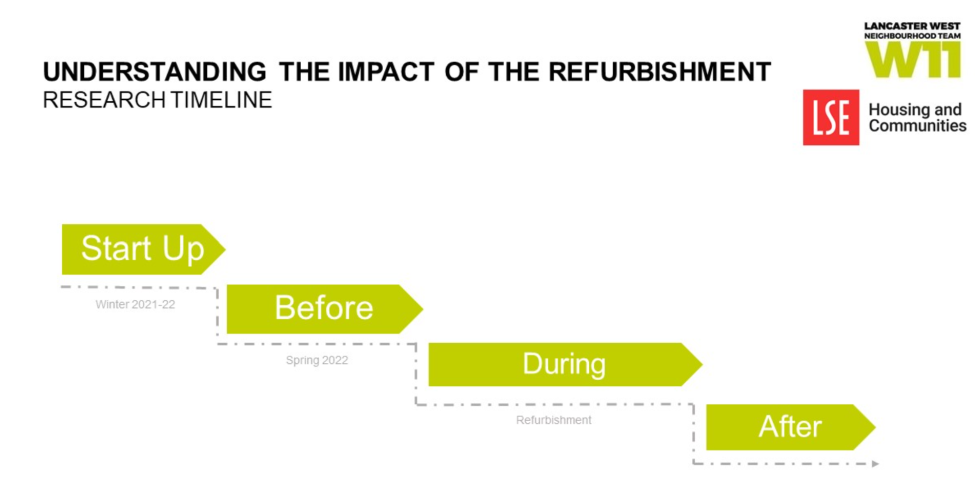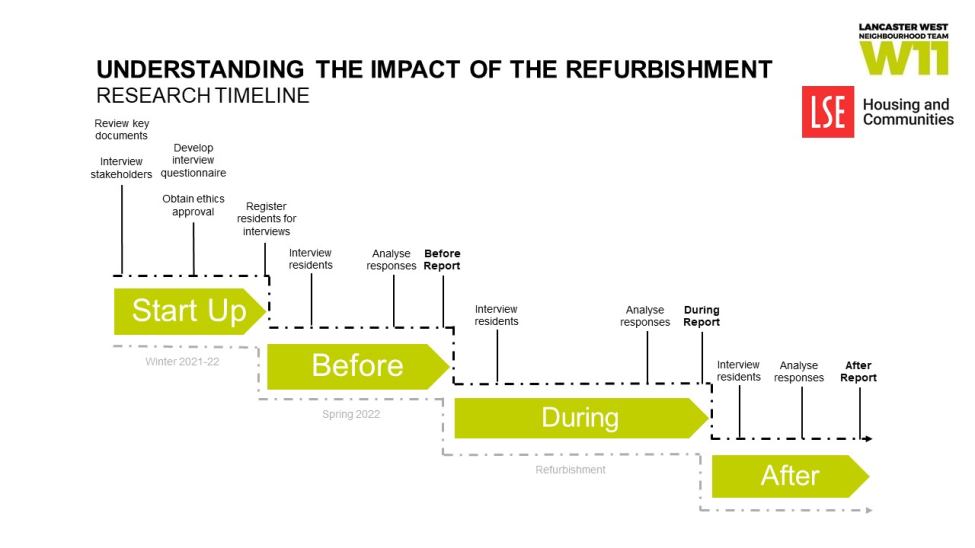Following the Grenfell Tragedy, a commitment was made by all levels of government to work with the residents of Lancaster West Estate to transform it into a model estate for the 21st century. In January 2020, this vision was broadened to make the estate as energy-efficient as possible, with the aim of becoming carbon-neutral by 2030. Retrofitting social housing estates to cut energy use as much as possible and improve energy performance is complicated and requires strong partnerships and communication between all parties. Landlords need to work closely with residents, as well as with architects, surveyors, contractors and other. A full retrofit programme, with residents in situ, has a major impact on people’s lives, and the aim of this research is to learn from this journey from a resident point of view. We want to understand the wider community impacts of the refurbishment, as the support of the local community is vital to the success of this upgrading project. We want to understand and document what happens, to provide feedback and make recommendations to the delivery team. The findings will offer lessons for other similar projects and support the roll-out of similar works in estates across the country.
This research is funded in part through the Social Housing Decarbonisation Fund (SHDF) and published findings will go to support funders through their evaluation of the scheme with BEIS in understanding the impact of this work.






